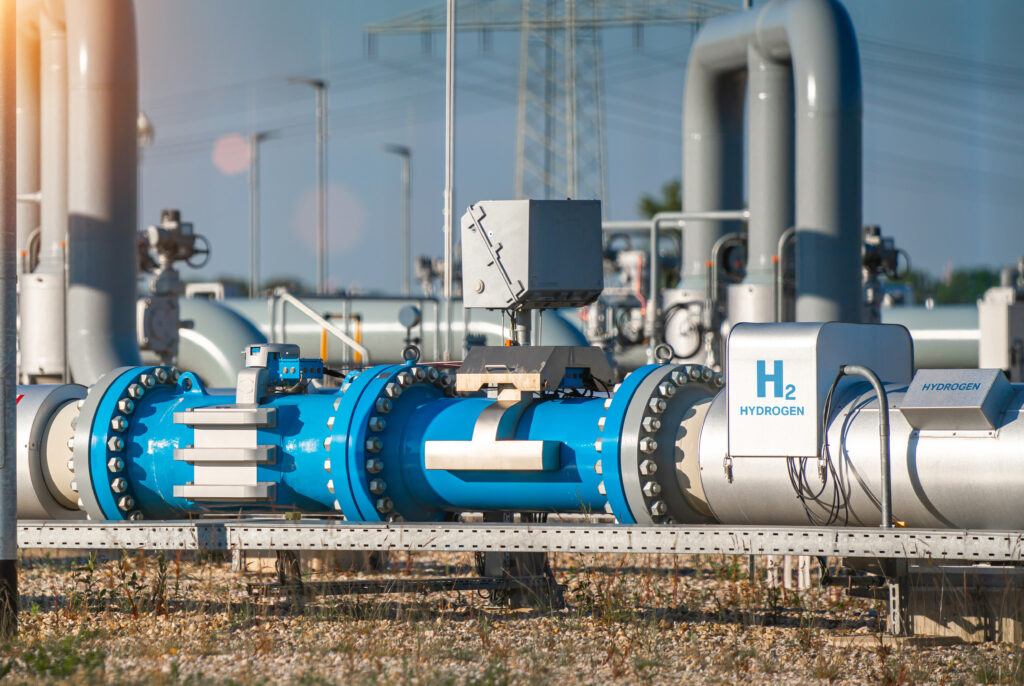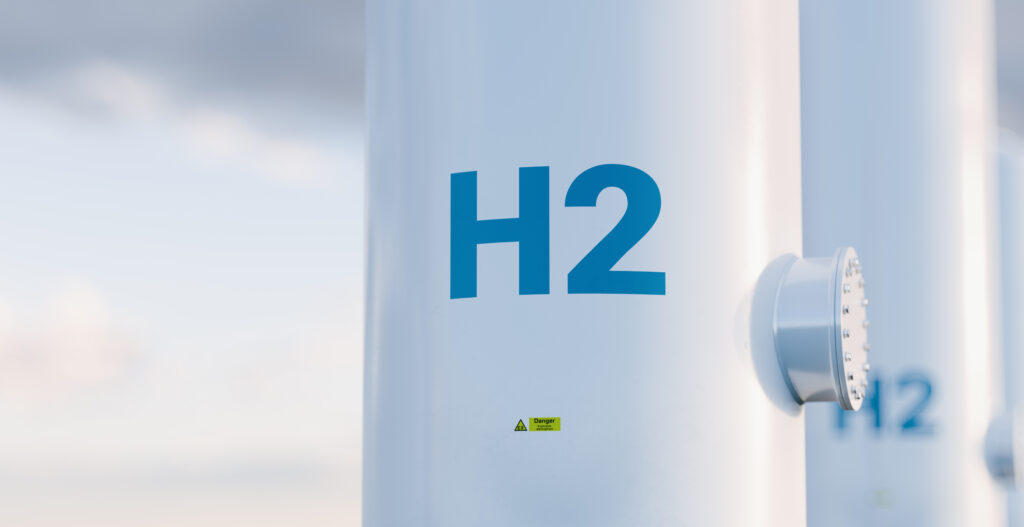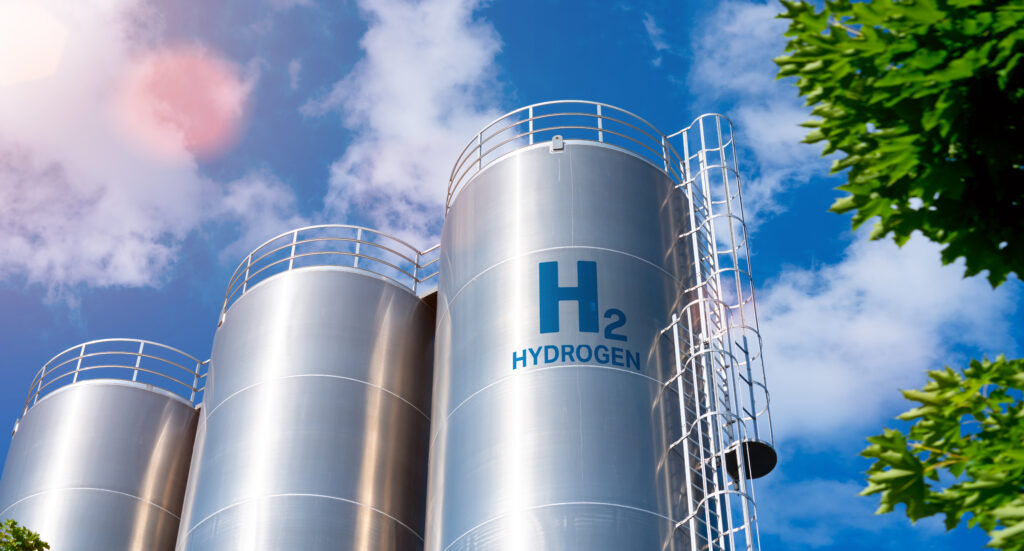
Fueling the Future: $7 Billion Investment in Regional Clean Hydrogen Hubs Marks Major Milestone in U.S. Energy Transition
The U.S. Department of Energy announced the allocation of $7 billion to launch seven Regional Clean Hydrogen Hubs across the U.S.
Amongst global efforts to combat greenhouse gas emissions, hydrogen fuel has emerged as a key solution in transitioning to a more sustainable future. Because of its ability to be produced with zero or near-zero carbon emissions, many regions have begun investing in hydrogen technologies, which has further accelerated industry innovation and job opportunities.

Hydrogen fuel holds great promise in shaping our future, however, further research and development are essential to fully unlock its potential.
DOE Allocates Substantial Funding Toward Regional Clean Hydrogen Hubs
On October 13, 2023, the U.S. Department of Energy (DOE) announced the allocation of $7 billion to launch seven Regional Clean Hydrogen Hubs (H2Hubs) across the U.S. as part of the Bipartisan Infrastructure Law. The H2Hubs will accelerate the commercial-scale deployment of hydrogen to meet the nation’s climate and energy security goals.
The H2Hubs are anticipated to generate a combined output of three million metric tons of hydrogen each year, contributing to almost one-third of the 2030 U.S. production goal while reducing emissions from hard-to-decarbonize industrial sectors.
Additionally, the H2Hubs are projected to decrease carbon dioxide emissions by 25 million metric tons annually from end-users, as well as generate and maintain tens of thousands of jobs nationwide, all while promoting healthier communities. The timeline for construction of the H2 Hubs is anticipated to be 8-12 years for completion of the projects.
International Code Council Support Toward the Advancement and Safe Implementation of Hydrogen Fuel
The DOE’s announcement marks one of the largest investments in clean manufacturing and jobs in history, creating many opportunities for design professionals, skilled trades, consultants and other industry professionals for the successful construction of H2 Hub projects.
Earlier this year, the International Code Council became a member of the Center for Hydrogen Safety (CHS), a global non-profit promoting hydrogen safety and best practices worldwide.
In support of unlocking the full potential of hydrogen fuel, the Code Council has been actively reviewing research and developing resources to guide the safe and efficient use of hydrogen now and in the future of the built environment.

SEE RELATED: Advancements in Hydrogen Use as a Carbon-Free Fuel
Below are ways the Code Council is supporting the safe advancement of hydrogen as a fuel source.
1. Addressing Gaseous Hydrogen/Natural Gas Admixtures with Proposed Code Revisions for the 2027 International Codes
Model codes and standards must be updated to address safety gaps when hydrogen is blended into natural gas. The Code Council’s PMG and Fire Code Action Committees are currently developing 2027 International Codes® (I-Codes) code proposals for the safe introduction of hydrogen admixture to natural gas into the built environment.
The Code Council’s PMG Code Action Committee (PMGCAC) has developed a Hydrogen Working Group that reviewed the current requirements in the I-Codes that address the use of hydrogen and assessed the need for additional safety measures based on the current and anticipated use of hydrogen in the built environment. The working group participants include representatives from academia, National and International Associations, National Testing Laboratories, manufacturers of appliances, equipment, and piping systems, Contractors, Engineers, Natural Gas Energy suppliers, standard development organizations, building and fire officials, and others.
Gaseous hydrogen fuel at 95 percent or higher has had code requirements included in the International Fuel Gas Code® and many other publications for years. The working group’s scope is expanding provisions to include gaseous hydrogen and natural gas admixtures.
2. Development of a Hydrogen Project Permitting Guidance and Inspection Checklists for Membership (CHS/DOE)
One of the issues facing many state and local municipalities will be the lack of previous exposure to hydrogen projects. As the hydrogen industry continues to expand, encompassing aspects like hydrogen production, refueling station construction and end uses within the built environment, it becomes essential to allocate additional resources to aid communities in understanding how these systems work and the safety measures required to ensure proper operation.
Globally, hydrogen projects have seen significant delays in permitting due to new technologies and applications for hydrogen projects that are unfamiliar to many stakeholders. The Code Council, along with the Centers for Hydrogen Safety, will work to develop guidance for the permitting process to assist in the global development of the hydrogen industry.
Considering the multiple technologies involved in the production, storage and utilization of hydrogen, the Code Council will also consult industry experts to develop inspection checklists to support Authorities Having Jurisdiction (AHJs) in overseeing the construction of these systems.
Although no checklist can provide complete safety assurance, checklists do provide the opportunity to highlight key safety provisions required in building codes and standards that regulate the use of gaseous hydrogen.
Hydrogen will soon see many new end uses, such as heating for homes and businesses, expansion of gaseous hydrogen fueling stations, and use as fuel for high energy-demanding equipment aimed at reducing carbon emissions globally.
3. Initiating Regional Outreach to States That Have Been Awarded Hydrogen Hub Projects
To decide which regions to award the H2Hubs, the DOE evaluated:
- Technical Merit and Impact
- Financial and Market Viability
- Workplan
- Management Team and Project Partners
- Community Benefits Plan
After evaluating these criteria, the DOE has awarded negotiations to the following regional project submissions:
- The Appalachian Hydrogen Hub
- The California Hydrogen Hub
- The Gulf Coast Hydrogen Hub
- The Heartland Hydrogen Hub
- The Mid-Atlantic Hydrogen Hub
- The Midwest Hydrogen Hub
- The Pacific Northwest Hydrogen Hub
To assist the regions receiving H2Hub awards, Code Council experts will be reaching out to H2Hub-awarded states to provide information and resources surrounding the production, storage, and usage of hydrogen fuel.
The Code Council is researching each project, seeking a comprehensive understanding of the chosen technology and the various methods of hydrogen production, storage containment and the intended end uses for hydrogen. This effort aims to create essential resources that will aid AHJs with permitting and inspection guidance, and other valuable information required for the successful development of these projects.
Assistance Through the International Code Council
With the advancement of the hydrogen industry and the role hydrogen will have in decarbonization efforts, the Code Council will be working with CHS and its international member experts to develop further safety guidance to meet the needs of this ever-expanding industry.

View the Code Council’s dedicated PMG website, here.







